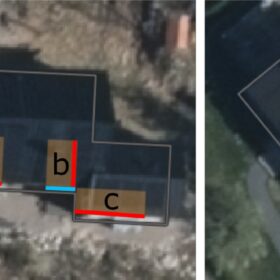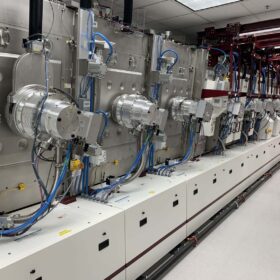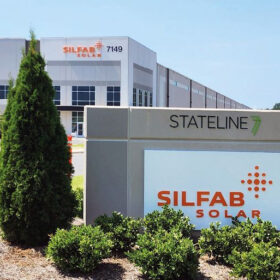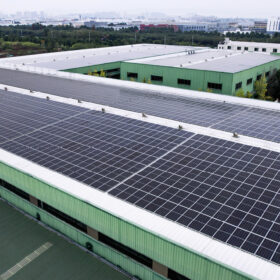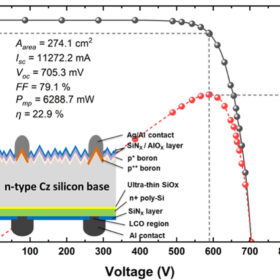The impact of ice balls on PV module hailstone safety standards
Researchers in Switzerland have investigated the impact behaviour of ice balls on an aluminium Hopkinson bar at different velocities, diameter and temperature.
Using LiDAR data to improve modeling of PV system tilt, azimuth
Researchers in Sweden have developed a method to use LiDAR data to enable more precise tilt and azimuth modeling of solar PV and solar thermal capacity at a regional or substation level. The model could enable aggregators and grid operators to improve grid planning.
French company unveils PVC-based mounting system for C&I solar projects
Renolit Ondex says its PVC-based mounting system is lighter and more impact-resistant than metal or fiber cement supports, while also helping to lower PV module temperatures.
Thin-film solar patents, manufacturing equipment listed for sale
A cancelled factory led to the sale. The solar cells produced by the equipment are “game-changing tech at liquidation values,” said the seller.
U.S. solar manufacturing moving onshore and prospering
Efforts to establish solar manufacturing in the United States, on the back of generous Inflation Reduction Act subsidies, have had mixed results. While module assembly facilities appeared swiftly, cell production capacity trails far behind and current policy uncertainty is leaving more questions than answers for solar manufacturers of all sizes.
China solar module price rises for fifth straight week
In a new weekly update for pv magazine, OPIS, a Dow Jones company, provides a quick look at the main price trends in the global PV industry.
Digging into China’s solar capacity numbers
Amid a record amount of new solar capacity added in China in 2024, the share held by small-scale, “distributed” arrays fell to 38%, from 58% in 2022. Grid constraints, policy changes, and pricing adjustments have impacted home and business solar arrays, as Vincent Shaw reports, from Shanghai.
Solar-plus-storage for extreme low temperatures
Scientists in the United States have created a testing platform for energy harvesting in solar-plus-storage systems under extreme temperatures ranging from -180 C to 300 C.
TOPCon solar cell based on aluminum contacts achieves slightly lower efficiency than silver-based counterpart
Researchers in Australia have have fabricated an aluminum contact-based TOPCon solar cell based that achieved a power conversion efficiency of 22.92%. The device was built with an aluminum contact manufacturing process that reportedly does not compromise the surface passivation quality of underlying silicon oxide layers.
Long-term issues found in warehoused solar panels
Clean Energy Associates (CEA) is receiving more calls from solar developers concerned about warehouse panel damage. CEA senior engineering manager Claire Kearns-McCoy explains how improper handling, stacking, and storage conditions can lead to long-term issues.

